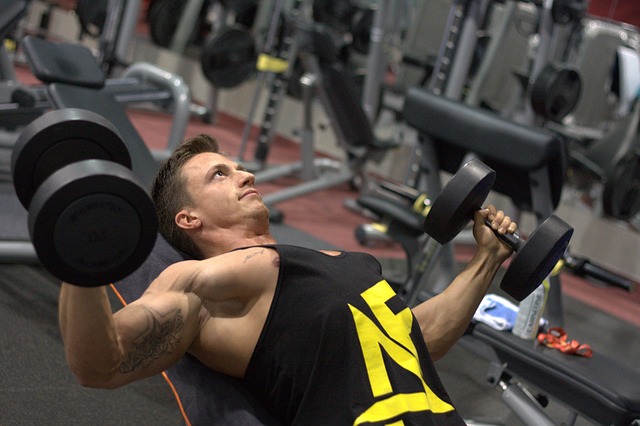
Boosting testosterone levels through exercises is a widely recognized practice that can produce both immediate and enduring results.

How Working Out Boosts Testosterone Levels
In the realm of men’s health, the association between exercise and testosterone levels has garnered significant attention.
The internet is replete with testimonials and flashy campaigns featuring muscular men extolling the virtues of testosterone-boosting solutions.
But what does the scientific landscape reveal?
Does regular exercise genuinely contribute to increased testosterone levels? Let’s delve into this intricate relationship.
Understanding High Testosterone Levels: A Male Imperative
Testosterone, a hormone naturally produced in men’s testes, plays a pivotal role in shaping an array of male characteristics, from facial hair to sexual function.
This hormone surges during young adulthood and continues to be produced throughout a man’s lifetime.
Optimal testosterone levels offer a myriad of benefits, including stronger bones, enhanced mood, a healthy heart, improved concentration, heightened libido, and lean muscle mass.
However, the natural aging process introduces a gradual decline in testosterone production, decreasing by approximately 1% each year post one’s 30s or 40s. While this phenomenon is typical, it can lead to sexual health issues like erectile dysfunction, infertility, and a decrease in muscle mass.

Exercises That Elevate Testosterone Levels
Numerous exercises have demonstrated the capacity to boost testosterone levels, particularly by promoting optimal body composition, muscle growth, and fat reduction.
Here are some exercise routines supported by scientific findings:
1. Resistance Training:
- Research studies, such as one published in the International Journal of Sports Physiology and Performance, have shown that resistance training three times a week leads to immediate and sustained increases in testosterone levels. Notably, this holds true for both younger and older men. Weightlifting exercises like deadlifts, squats, and bench presses have proved effective in raising testosterone levels.
2. High-Intensity Interval Training (HIIT):
- High-intensity interval training has gained recognition for its capacity to enhance endurance, anaerobic capacity, and VO2 max. Studies have established that HIIT training performed at very high intensity, interspersed with brief rest intervals, correlates with increased testosterone hormone levels. Activities like sprinting, high-intensity biking, and vigorous sports are examples of HIIT exercises that can effectively elevate testosterone.
Endurance Training Consideration
- While HIIT and resistance training exhibit testosterone-boosting potential, endurance training may present a different scenario. Some studies suggest that extensive endurance training might temporarily lower testosterone levels, particularly in ultra-endurance athletes. However, this effect is primarily observed in cases of extreme, prolonged exercise, and the general population is unlikely to experience such outcomes.

Additional Ways to Enhance Testosterone Levels
Exercise is just one facet of the broader strategy to elevate testosterone levels naturally. Dietary choices and lifestyle adjustments play vital roles:
1. Nutrition: Incorporating a balanced diet rich in omega-3 fatty acids from sources like salmon, complex carbohydrates from foods like sweet potatoes and quinoa, and protein from lean meats can positively impact hormonal health.
2. Quality Sleep: Prioritize 7 to 9 hours of uninterrupted sleep each night to maintain optimal testosterone levels and overall well-being.
3. Stress Management: Chronic stress can lead to elevated cortisol production, disrupting testosterone production. Practices like meditation and yoga help manage stress and contribute to increased T production.
In summary, the connection between exercise and testosterone levels is well-established.
To harness the benefits of increased testosterone, incorporating exercises like resistance training and HIIT is a promising approach.
Alongside exercise, dietary choices, quality sleep, and stress management form an essential framework for naturally optimizing testosterone levels.

